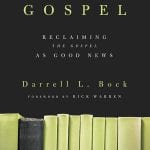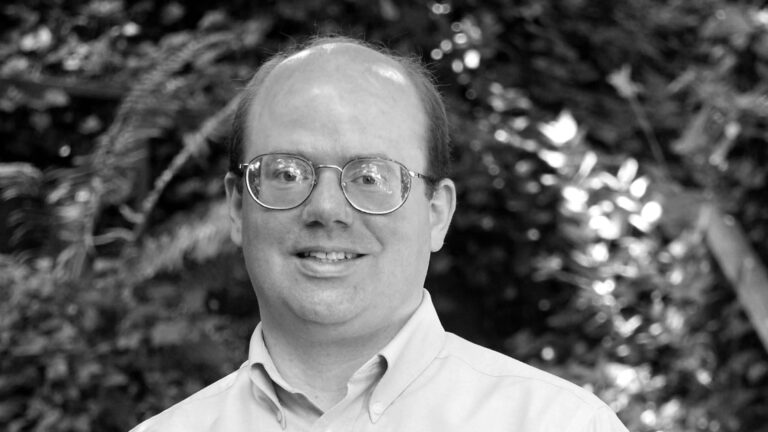Dan Claire moved his family to the nation’s capital in 1999 to serve as the founding director of the Washington, D.C., campus of Reformed Theological Seminary. Living in the city, the Claires found many of D.C.’s neighborhood churches asleep or dead, so they drove 45 minutes out to the suburbs for church. But the need to reach out to neighbors in the city led to a search for alternatives. Neighbors seemed unmoved by a Christianity largely absent from the city and its spiritual and social concerns. Eventually, Claire sensed God calling him to focus on D.C. renewal by establishing small churches throughout the neighborhoods of the city.
Claire looked for partners to help plant but found little interest. The older “parish” model of church planting wasn’t finding much support among evangelicals in the late 1990s. But around this time, orthodox Anglicans in the Global South worked with their Western friends to start the Anglican Mission in America. The mission, created in response to doctrinal and ethical crises in the mainline Episcopal Church as well as North America more generally, was designed to be primarily a mission to unchurched, unreached North America. Thus, church planting was a major priority.
Through AMiA, Claire became a Rwandan missionary to Washington, D.C., and started the Church of the Resurrection on Capitol Hill.
Now Resurrection is about to celebrate its seventh year in the same rented historic church building near the Library of Congress. Two new churches have already been planted out of Resurrection, and a fourth and fifth in the D.C. region are in the works. The three current churches meet inside the Capital Beltway on Sunday evenings, renting historic church buildings in keeping with a mission-minded, streamlined budget where church planting is a priority.
Together, these congregations compose a church-planting movement known as RenewDC.
Consistent with the theology of Anglicanism’s founding documents, Claire is Reformed and paedobaptist. But joining RenewDC churches requires subscribing only to Christian essentials, which are “hopefully the same among all the gospel-centered churches in the city,” Claire says. The churches focus on gospel essentials (worship, discipleship, and community) leading to mission. As a result, the RenewDC churches resemble missionary outposts and could perhaps be compared to military chapels outside the United States.
Diverse But United
The diversity of backgrounds among congregants is striking, if not surprising given the urban environment. In the midst of such diversity, one perhaps counter-intuitive strategy for bridging the gap between people is simple, liturgical worship. “It provides a common framework,” Claire says, “a common language for people.” These Anglican worship services follow the same basic outline as most Christian churches since the earliest days of the church: worship, prayers, Scripture reading, sermon, affirmation of belief (creeds), and the Eucharist. They practice these ancient rites using contemporary music and language.
RenewDC also emphasizes hospitality. Claire often quotes Psalm 68:6, “God sets the lonely in families.” From the beginning, members and leaders are encouraged to prioritize outreach and community. In keeping with ancient Christian tradition, meals are shared after services, except when logistics made it impossible to do so. Parties and retreats became a regular feature of outreach.
Each RenewDC church has seen rapid growth among people looking for a place to belong. For Resurrection on Capitol Hill, this has meant a large influx of congressional staffers. For Advent in Columbia Heights, growth has come primarily from young adults working in the city’s myriad non-profits. For Ascension in Arlington, the church has exploded with young families.
In order to reach out to more of the unchurched, RenewDC churches have partnered for several years with Capitol Hill Baptist to offer a series of evangelistic presentations in a room at the Capitol building and at Georgetown Law School. During these “Lunchtime Talks,” inquirers find a free lunch and a 15-minute presentation followed by questions and answers. The more provocative the topic the better, such as “Is Jesus Depressing?” or “Is Jesus Bigoted?”
From the beginning, a major goal of RenewDC churches has been to avoid stealing from other local neighborhood churches. This priority leads to an emphasis on the unchurched and newcomers from other cities, but it requires deliberate redirection.
“If you are coming from another church here in D.C., please have your pastor give me a call first,” Claire says. “Our relationship with other churches here in the city is more important than where individual Christians worship.”
International Cooperation
Even while RenewDC works to bolster ties with other local churches, leaders maintain connections to the global church, particularly African Anglicans. Claire led a team of 13 to Rwanda in 2005 to establish a sister-church relationship with the Anglican parish in the city of Nyagatare. The Rwandan congregation was disturbed and concerned to discover that 11 members of the team were singles in their late 20s and early 30s, and that there were many more where they came from. The Nyagatare parish took it upon themselves to pray for the singles in Resurrection. Later that year Claire performed his first wedding on Capitol Hill, and two years later the church had celebrated 50 weddings. That pattern has continued among all the RenewDC churches. Now six years later, the church nurseries are full, and the congregations are facing complicated challenges in a context where public education remains poor overall.
Growth has led to a persistent need for new leaders. Claire and the other ministers have focused on recruiting, including men who studied at RTS, Gordon-Conwell, Oak Hill Theological College, Wycliffe Hall in Oxford, Westminster Theological Seminary, Asbury Theological Seminary, and Wheaton. Multiple pastors within the network share the leadership load and their accumulated wisdom. Eight men have been ordained, and half a dozen seminarians are now at work training. This model facilitates delegation and helps meet the heavy needs of young singles for pastoral ministry, particularly outreach and counseling. Claire admits there is a negative side to this approach.
Having interns involved in the pastoral ministry of the church can be and often is messy. Laypeople have sometimes left the church out of frustration; others have complained. But I’m convinced that a church that isn’t messy is an unhealthy church. As pastor, my job is not to hide the mess, but rather to keep it from interfering with our vocation as a missionary outpost of the kingdom of God.
Originally trained as a physician, Claire compares the “mess” to a teaching hospital, where students are learning to practice medicine. “Sometimes procedures take longer or aren’t quite as professional as they could be,” he says. “But the benefits of being treated in a teaching hospital far outweigh the costs.” The policy of sharing the pulpit and other important duties facilitates recruiting and meaningful training. It also teaches church members that worship is not about watching a superstar in the pulpit or within the worship band. The “teaching hospital” model also means that lay leaders who don’t have it all figured out can themselves learn how to lead.
Connections and opportunities outside of D.C. are being forged as well. Mark Booker and his family left Resurrection in 2009 (turning down an opportunity to do doctoral work in Oxford) and settled in the heart of Boston to plant the Church of the Cross. In 2010, the RenewDC team planted the Church of the Incarnation, near James Madison University in Harrisonburg, Virginia. Missionaries have been sent to Europe, Egypt, and Indonesia. Teams have traveled to Rwanda and Indonesia to encourage and support indigenous Christians. Founding member Laura Waters Hinson produced As We Forgive, an award-winning documentary about the role of Christianity in bringing about reconciliation in Rwanda after the genocide. (There’s also an accompanying book by the same title.)
Small But Coordinated
Locally, the strategy for present and future ministry in Washington is tied to RenewDC, a vehicle for the churches to work together in concert.
“We believe there are a lot of good things that megachurches do that smaller churches like ours can’t do,” Claire admits. “Nevertheless, it seems to us that there are some things Scripture requires of churches that are virtually impossible in the megachurch context. For this reason, we intentionally keep our churches small. But by uniting together as RenewDC, we can provide some of the benefits of the megachurch without losing the intimacy of the neighborhood church.”
Having one church rather than three would be more efficient: only one person would have to be paid for preaching and leading worship; one building rented instead of three; one nursery team instead of three. “But healthy churches are inefficient,” Claire says, “because relationships are inherently inefficient.”
There are still gaps in connectivity. Claire highlights one need in particular, no doubt familiar to many urban church planters: “We are in need of mature senior Christians who will retire into the city and share the wisdom of their lives with young adults.” They continue to explore connections with older, established churches and develop relationships in the Anglican Mission’s East Coast regional body, the Apostles Mission Network. The Gospel Coalition council member John Yates and The Falls Church are excited about the potential growth in their relationship:
Dan and I are committed to developing a better way forward to provide both the seminary education and the practical leadership skills needed to plant and pastor churches. Beginning in the neighborhoods of Washington D.C., extending out through the suburbs, we are now sending young pastors out to strategic cities beyond. I haven’t had so much fun since youth ministry days 40 years ago!
District of Columbia residents proclaim on their license plates the injustice of being shut out of the U.S. Senate and floor votes in the House of Representatives. But in the land of “taxation without representation,” God’s kingdom is not without witness, as his representatives call D.C. to bend the knee to King Jesus.


































